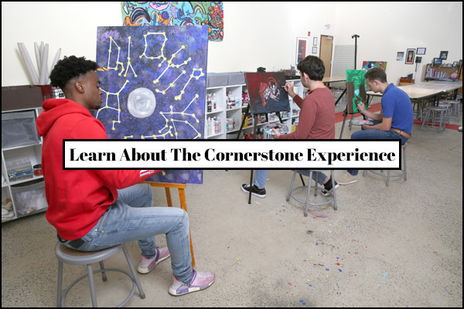The route from Pathways to the full Cornerstone Experience
In both Pathways and Cornerstone, the primary goal for students struggling with school avoidance is to first significantly increase a student’s comfort level in a school setting and then help them be committed to regularly attend mainstream classes and benefit from the full Cornerstone Experience.
In Pathways, we, of course, begin by first helping the student feel comfortable within the Pathways suite and then focus on achieving initial attendance and educational goals by using methods and strategies that are tailored to each individual student. Gradual exposure to the school setting is always incorporated as a key to overcoming school avoidance. This strategy provides Pathways students with incremental steps; it is the concept of wading into water as opposed to diving right in: students practice managing and overcoming their anxiety at a pace that works for them.
Once a student is fully attending, comfortable and participating in Pathways, and compliant with her/his gradual exposure plan, the emphasis becomes transitioning into Cornerstone’s mainstream setting so the student can enjoy and benefit from the overall Cornerstone Experience.
Students are slowly introduced to general classes by participating in an art, music or gym class they enjoy or sometimes an academic class that does not elicit anxiety. This transition can be short or long, whatever works best for each Pathways student.
One important contributing factor to ensuring a successful transition is Cornerstone’s policy that the clinician working with the student in Pathways remains his/her therapist during the entire stay at Cornerstone. The same is typically true for the teachers who worked with the student in Pathways as well. All of this continuity provides great support for the student and can often make all the difference.











